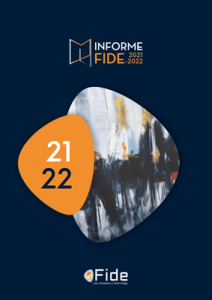
INTRODUCTION – Laurent MANDERIEUX
The metaverse presents many challenges for the upcoming century. Thanks to opportunities offered by the metaverse, technology developments have now taken completely diverse directions from previous technology evolutions. How can a non-real world that applies to a non-material world be confronted with the rules and practices of the real world?
There are many key aspects to clarify about the metaverse and many imprecise definitions of it: what is it exactly? Does it fit with the traditional intellectual property system, or should the system evolve to face the upcoming digital challenges offered by the metaverse?
METAVERSE PROPERTY – Andrés GUADAMUZ
The metaverse was initially described as a virtual environment where people could operate and live their lives, but the reality is that there is no legal definition of «the metaverse». Nonetheless, Guadamuz proposes one: “a persistent virtual 3D space that allows people to interact with one another”. In this environment, one can find components such as platforms, avatars, virtual goods, virtual lands, user-generated content, or currencies.
In this ecosystem, one can find two main business models connected to the metaverse:
- Closed or centralized: where there is complete control by a company and all assets’ servers and services are centralized.
- Open or decentralized: where users can operate in different virtual environments and assets can be used and interchanges between those virtual spaces. The environment is not owned by a single company.
MASTERING THE METAVERSE – Michaela MACDONALD
MacDonald outlines that the concept of the metaverse is not entirely new, it has been dreamed about for several decades. The general public may think about it as the convergence and culmination of a trend, developing from the early internet and cyberspace through social media and video games. In this sense, there would be many lessons to learn from these previous iterations, designing laws and regulations that understand the underlying issues.
The metaverse is a convergence of digital and physical all in one space. MacDonald highlights that, with this definition, it is clear that there is not a single metaverse just yet and there is a number of challenges to face, intellectual property being one of them.
This space is defined by features such as realism, ubiquity, interoperability, and scalability. Out of these characteristics, interoperability is the crucial one, since the concept of the metaverse is truly a seamless space, with a digital identity that will transcend all different environments and will exist in the same form everywhere in the digital world.
According to MacDonald’s view, intellectual property rights lie at the core of the metaverse, as it has been for the video games industry, enabling companies to design and develop realistic and immersive user experiences. However, it is yet to be seen whether intellectual property is ready for the metaverse or if it is going to be one of the major obstacles for companies and users. Intellectual property rights are needed to effectively tackle the issues and prepare the world for the metaverse, or the alternative might not be as beneficial.
In terms of patents, something to highlight is the need for standards. The telecommunications industry has managed to pull within patents knowledge build and infrastructure that is available for everyone, which is what is needed in this case. Patents will likely focus on protecting the underlying technology, making sure that the metaverse can be built on those foundations.
Copyright will be essential when thinking about interactions between businesses and users. For users, the ability to create share, and commercialize content will raise issues, especially around ownership. Questions of law, jurisdiction, and enforcement will be critical, especially considering intellectual property rights and enforcement are territorial but metaverse is not. Trademarks and design rights will also have problems existing in the metaverse.
Every intellectual property strategy must take into consideration the different representations, versions, and stages of the metaverse, focusing on the different implications.
It is important to emphasize that the metaverse should be built with the user in mind. One needs to take into account that these users will also include children and young people, it has to be considered what kind of space is being built, the accessibility, the rules that regulate users´ behavior, how users provide consent…etc. One should think about a space that is not just about monetization or commercial transactions, but so much more.
Just because something can be traded and is valued, does not necessarily mean it has to be owned through property rights. Property is about control, and possession, however, intellectual property rights offer a different type of control than physical property. How can this be facilitated in a digital space? Is there a need for a new concept of property? Are contracts enough?
Finally, the panelist outlines that NFTs are leading the conversation but do not replace the discussion of legal issues connected to the metaverse.
IP STRATEGIES IN THE METAVERSE – Paolo LANTERI
The public attention towards the metaverse is growing exponentially for its potential social and economic impact. However, available data attempting to measure its real economic size tend to differ significantly.
There are also many ethical, political, financial, social, and especially legal questions to be answered.
The metaverse offers a great variety of opportunities to the intellectual property eco-system such as the reinforcement of intellectual property´s relevance, new business models or new markets, the overcome of physical and geographical barriers, and unleashing the full potential of data.
In addition, there are many challenges, some are cross-cutting the broader policy and legal framework (e.g., Demographic, geographical distribution and entry-barriers, standardization and interoperability, and platforms’ responsibility), others are specific to the intellectual property (e.g., the principle of territoriality, applicable law, terms of use/end user license agreements (EULA), exhaustion of rights, etc.).
The development of the metaverse might pose some challenges to the operations, strategies, and management of IP rights rather than to the basic principles and foundations of the IP system. In this context, the World Intellectual Property Organization analyses the main disruptive technologies transforming the manner society is conceived, notably within its initiatives connected to Frontier Technologies.
QUESTIONS
Didn’t the legislator have the opportunity to regulate in the Digital Service Act a specific responsibility scheme for these providers?
Laurent MANDERIEUX: the Digital Service Act was a European attempt to regulate the digital revolution. However, it is probably incomplete and too old already for the metaverse, since it was negotiated 7 years ago. This is embedded in the own nature of legal systems; regulation comes afterward the emergence of the legal phenomenon to be regulated. This is why lawmakers must rapidly move, explore and act to provide solutions to the challenges that are arising.
Isn’t everything in the metaverse already in our real lives, and already regulated? What are the different aspects that the metaverse brings?
Michaela MACDONALD: Interoperability is one of them since the metaverse is supposed to be one interconnected space. Currently, we do not have a digital identity that is the same for every single platform and every single environment that you use. A user has multiple accounts and multiple identities that are not necessarily interconnected.
In addition, there are also a great number of issues not being solved effectively and the metaverse is going to make them more prominent, one of which is the lack of digital ownership. NFTs are not necessarily the solution.
Paolo LANTERI: How do you deal with works created by avatars? Is it possible to transfer copyright economic rights on works that are not being created yet to the owner of the platform? There is an additional layer of complexity that has been only partially addressed.
Laurent MANDERIEUX: in the previous technological revolution led by the Internet there was a common ground, but in this case, society faces platforms that do not have interoperability and the issues of the EULA among other challenges. That is why there is a need to either revisit the system or consider that the system has the elasticity to cover all these points.
Should the IP law shape the metaverse or should it wait until the metaverse spontaneously shapes itself and then act?
Michaela MACDONALD: there is no need to wait. The challenges that the metaverse reveals are not new topics but will definitely be more complex and impactful if they are not addressed from a standpoint of clarity and having in mind the values that have to be put in this new reality.
What is the priority intellectual property right to work on to ensure that the metaverse can adapt to it?
Michaela MACDONALD: copyright, since it is fundamental for user interaction with the content.
How long will it take to have some guidelines from the states about this topic?
Paolo LANTERI: policy-makers did not take too long to start addressing some challenges posed by blockchain and Artificial Intelligence. One can assume that policy-making on the metaverse will also start soon. .
Panel´s view on whether or not it is necessary to establish completely new regulation in relation to the metaverse, as it seems that the current regulation on digital content and the existing case law relating to virtual worlds and video games is, on many occasions, enough to establish sufficient legal certainty in the metaverse.
Michaela MACDONALD: there is not necessarily going to be a new regulation focusing on the metaverse per se, but we will see revisits on how current regulation applies to the metaverse as it evolves.



















